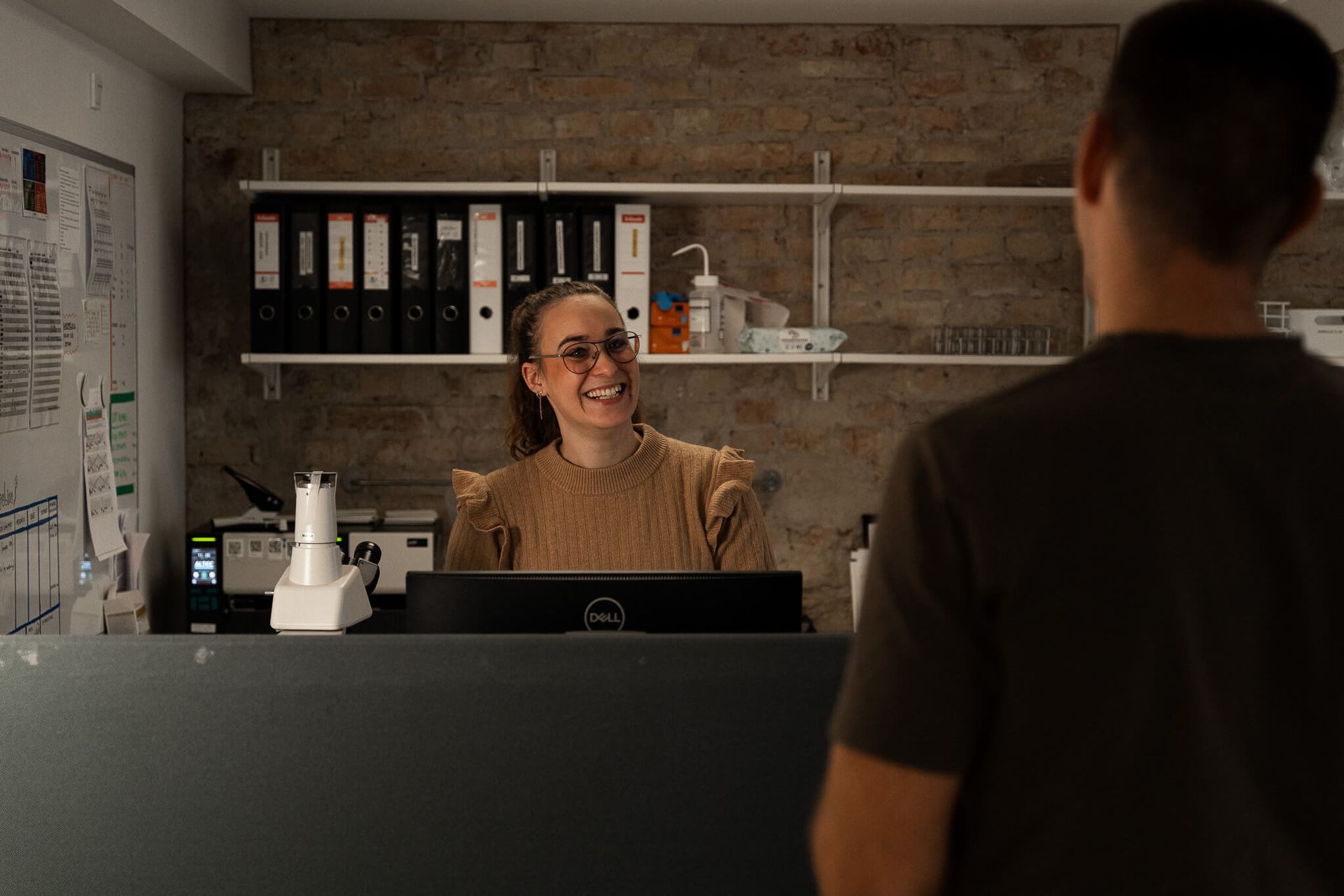Same-Sex Parents: Our 5 Best Tips for Starting a Two-Mum Family
Starting a family as a lesbian couple is an exciting and deeply personal journey. At Born, we understand the unique steps involved in family building for two-mum families, and we’re here to guide and support you along the way. Here are some essential tips to help you navigate the process of starting your family.
Things to Consider as a Same-Sex Couple:
1. Understand Your Fertility Options
For same-sex couples, the journey to parenthood often begins with donor sperm. However, there are several fertility options available, and it's essential to choose the method that aligns best with your family’s goals and values:
- Intrauterine Insemination (IUI): This is a widely used fertility treatment where donor sperm is placed directly into one partner's uterus during ovulation. IUI is generally less invasive and is often the first step for many two-mum families. It's a relatively straightforward procedure and can be an effective way to achieve pregnancy.
- In Vitro Fertilisation (IVF): IVF is another option that involves fertilising eggs with donor sperm outside the body. Once fertilised, the resulting embryo is then transferred to one partner’s uterus. Some couples opt to use one partner’s eggs while having the other partner carry the baby. This method allows for a biological connection to the child for both parents, which can be an important consideration for many families.
- Reciprocal IVF: This unique option is specifically designed for two-mum families. In reciprocal IVF, one partner provides the eggs, which are fertilised with donor sperm and then implanted in the other partner's uterus. This approach allows both partners to be biologically involved in the pregnancy, with one partner contributing the eggs and the other carrying the pregnancy to term.
However, it’s essential to note that reciprocal IVF is not available in all countries, so you’ll need to research the regulations and practices in your area. Consulting with a fertility specialist can provide you with guidance on whether this option is suitable for you and your partner, as well as the associated medical and legal considerations.
2. Consider Legal Matters Early On
It's essential to establish legal rights for both partners regarding the child from the very beginning. Laws governing parental rights can differ significantly depending on your country or region, making it vital to seek legal advice as early as possible in the process. This proactive approach helps ensure that both parents are protected and that their rights are recognised under the law.
For couples in which one partner is not the biological mother, navigating the legal landscape can be particularly important. In some jurisdictions, the non-biological mother may need to undergo a legal co-parent adoption process to be officially recognised as a parent. This requirement stands even if both mothers are married, and completing this process ensures that both partners share equal legal rights and responsibilities toward the child. By addressing these legal matters upfront, you can foster a secure and supportive environment for your family, allowing both parents to fully engage in their child's upbringing
3. Decide Who Will Carry the Baby
One of the most beautiful aspects of starting a family as a two- mum couple is the unique opportunity to decide together who will carry and give birth to the baby. This decision can be an exciting journey filled with love and collaboration, and there are several physical and emotional factors to consider as you explore this choice.
- Fertility Health: A great first step is to undergo fertility testing for both partners. Understanding your fertility health can provide valuable insights and help you determine which partner might have a higher chance of conceiving. This is especially relevant if you’re planning to use methods like intrauterine insemination (IUI) or in vitro fertilization (IVF). Knowledge is power, and having these tests done can guide your decision-making process.
- Age: Age can also be an important consideration when deciding who will carry the baby. Fertility generally declines with age, which might influence your decision. However, it's worth noting that advances in fertility treatments mean that women in their late 30's and early 40’s can still have successful pregnancies. Consider how age might impact your individual circumstances and comfort levels when making this choice.
- Personal Preference: Personal feelings and preferences play a significant role in this decision. Some couples may find that one partner has always dreamed of experiencing pregnancy, while others may choose to share the experience through reciprocal IVF, where one partner provides the eggs, and the other carries the pregnancy. Open and honest discussions about your desires and feelings can strengthen your bond and ensure that both partners feel valued and heard throughout this process.
Ultimately, this decision is a deeply personal one, and what matters most is that both partners feel supported and excited about the journey ahead.
4. Pick Your Sperm Donor
Selecting the right sperm donor is a significant and deeply personal decision. We understand the importance of this choice and invest considerable time and effort into getting to know each of our donors thoroughly. This enables us to assist you in finding the ideal match that aligns with your needs and preferences. For this reason, you’ll discover an abundance of detailed information within each donor's profile, providing you with the insight and confidence needed to make an informed decision.
Most donor profiles include the following information:
- Baby photos
- Physical characteristics
- Education and occupation
- Personality traits, hobbies, and interests
- Staff impressions
- A handwritten letter from the donor
- Fun facts and quotes
- Donor category and family limit
If you’re feeling curious, why not create a free account and explore our donor profiles on our website. With our range of filters, you can refine your search by physical characteristics, education, occupation, and much more, helping you discover a donor that suits your preferences. As you browse through the profiles, take your time to consider a donor whose qualities resonate with both you and your partner. For additional guidance on choosing the right sperm donor, you can also check out our blog post here.
ID or No ID Release Donor?
One of the key choices you'll need to consider is whether to opt for an ID Release Donor or a No ID Release Donor. Choosing an ID Release Donor means that your child will have the option to access identifying information about the donor once they reach adulthood or the legal age for contact in your country. This option can provide your child with the opportunity to explore and learn more about their biological background, should they wish to do so. If you’d like to learn more about the differences between ID and No ID Release Donor categories, you can read further here:
It's essential to keep in mind that the category of donor available to you may depend on the country where you are receiving treatment. If you're unsure about your options or haven't yet decided where you would like to have your treatment, don’t hesitate to reach out to us. We're here to support you in making the best choice for your family, and we can help guide you through the process.
5. Prioritise Emotional Support
Starting a family can be an emotional process, and it’s important to prepare for the highs and lows that come with fertility treatments and pregnancy. Family-building can take time, and every couple’s journey is different. Some couples get pregnant quickly, while others may face more challenges. Keeping an open mind and being willing to adjust your plan if needed will help you stay positive throughout the process. Surrounding yourselves with supportive people can also make a big difference:
- Counselling: Many fertility clinics offer counselling services to help couples navigate the emotional aspects of fertility treatments. It can be helpful to talk to a professional about any fears, anxieties, or challenges you may face during the process.
- Support Networks: Connecting with other two-mum families, either through LGBTQ+ parenting groups or online forums, might provide a sense of community. Talking to someone who have gone through similar experiences can offer valuable insights and comfort.
Final Thoughts
At Born Sperm Bank, we are committed to helping two-mum families create the family of their dreams. Whether you’re just starting to explore your options or you’re ready to take the next step, we’re here to support you every step of the way.
Your path to parenthood is unique, and we’re honoured to be a part of your journey. Feel free to reach out to us for advice, guidance, or simply a compassionate ear. Together, we can make your dream of becoming parents a reality.
Other blog posts











